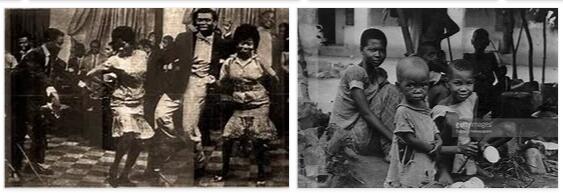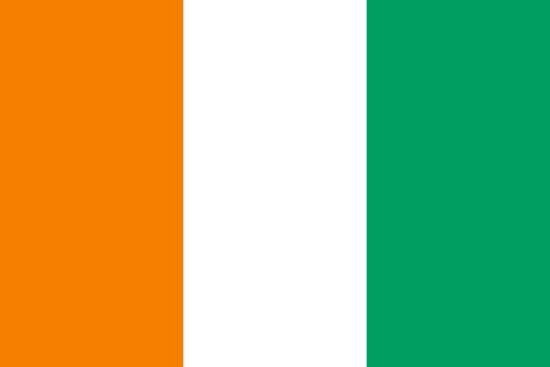Nigeria Between 1960’s and 1970’s
According to HEALTHINCLUDE.COM, the federal constitution (adopted with the accession to independence on 10 October 1960) allowed a balance between the three major parties: the Northern People’s Congress (NPC), dominant in the northern region occupied by the Hausa-Fulani, Muslims and traditionalists; the National Convention of Nigerian Citizens (NCNC), increasingly an expression of the Ibo ethnic group, of democratic traditions and more evolved in a European sense, prevalent in the eastern region; the Action Group (AG), an expression of the Yoruba ethnic group, prevalent in the western region. The federal government formed a coalition of the NPC (to which Prime Minister Abubakar Tafawa Balewa belonged) with the NCNC (whose leader, the intellectual Nigeria Azikiwe, had become governor general, that is, representative of the British sovereign); in the individual regions the government belonged to the parties that prevailed on the local level. In 1962 the AG was divided between a wing led by O. Awololo, oriented towards a pan-Africanist socialism and opposed to the premier ‘s offers to participate in the federal government, and a wing in favor of government participation, headed by SL Akintola (who more later, while Awololo and others were convicted of conspiracy, he formed the United People’s Party – UPP – and became the new premier in the western region, after a long crisis). In July 1963 a new region was created, the Mid-West, detached from the western region, while from 10 October 1963 the Nigeria assumed a republican constitution (President Azikiwe). The breakup of the GA had repercussions in the political framework with the formation of new parties; the tension increased in view of the elections of December 1964 (the Ibo contested the demographics based on the constituencies). The final results gave 162 seats to the NPC, 83 to the NCNC, 36 to the NNDP (Nigerian National Democratic Party, merger of UPP with dissidents of the NCNC of the western region), 21 to the AG, 10 to other groups. The formation of a broad coalition federal government (NPC, NCNC, NNDP) failed to heal the tensions, especially due to the growing hostility of the elite of the eastern region (the oil discoveries promised huge availability) towards the political dominance of the North.
Following the killing or arrest in January 1966 by Ibo officers of the federal and other regional rulers, gen. J. Aguiyi-Ironsi, through whose government the Ibos attempted to take control of the state apparatus. A decree which in May, after the Federation was abolished, established a centralized government aroused the reaction of exponents, including military ones from the North; after two months of tensions and unrest, culminating in the killing of Ironsi himself in July, col. Yakubu Gowon, a Christian from the North, who restored the federal system and tried in vain to re-establish an understanding between the regions. The col. O. Ojukwu, however, commander of the eastern region (where thousands of Ibos who escaped massacres had flown), demanded a complete political and economic autonomy of the region (by now sure of considerable oil revenues) and rejecting any compromise (Gowon had proposed the constitution of 12 states instead of the regions), exercised federal prerogatives up to proclaiming the secession as a Republic on 30 May 1967 of Biafra. The Lagos government condemned the “rebellion” and began an increasingly demanding military action in July; the long war against the Republic of Biafra – which obtained recognition and aid from many countries – continued, with progressive successes of the feds after an initial affirmation of the secessionists, until January 1970. From the painful civil war a new national consciousness matured,
In the period 1970-74 (later extended to 1975) a development and modernization plan was implemented, also through a newly established National Youth Service Corps; the federal government, with huge financial resources, has extended its action (the III development plan, for 1975-80, will strengthen the transport and communication infrastructures and school services at all levels). But starting from 1972-73 he began to decline consent to gen. Gowon, unable to restore civil government (predicted for 1976 but then postponed to 1978) and to tackle various problems (inflation, bureaucracy claims, price increases, transport congestion); a controversy with a regionalistic background arose over the data of the 1973 census. On July 29, 1975, a coup d’etat deposed Gowon who retired to Great Britain, established a Supreme Military Council (SMC), chaired by Murtala Mohammed (head of state), Gowon’s former rival. The SMC undertook a broad moralization of the state apparatus, established a Federal Executive Council (13 military and 12 civilians), appointed new state governors, and announced a return to civilian government for 1979 in October, initiating the preparation of a new constitution. The new political course, which aroused hopes and consensus (another 7 new states were created on February 3, 1976, while the plan to transfer the capital inland was announced) was troubled by a subversive attempt in February 1976, of which it is Murtala was left a victim, regretted by the Nigerians for having primarily pursued the interests of Nigeria; Western complicity in the coup were suspected, while a group of conspirators, led by gen. Bisalla, was executed (the forty-year-old Gen. Olusegun Obasanjo was the new head of state). On the way to the return to the civil regime, scheduled for October 10, 1979, the members of the Assembly that will have to define the new constitutional text were elected in 1977. The independent Nigeria, engaged in complex internal problems and substantially linked to Great Britain and the West, had completely neglected international relations, the implications of the secession of Biafra recalled to the importance of which. Since the 1970s, the development process (in particular the position of seventh oil producer, for which, however, he has conflicting interests with developing countries) has placed the country in the forefront of the continent: in particular, Nigeria has promoted the birth (May 28, 1975) of the Economic Community of West African States ( ECOWAS), which has overcome the barriers between Anglophone and Francophone states; the solidarity of the Nigeria committed and active with the newly independent states and with the liberation movements (politically decisive the support to the MPLA of Angola). During 1977, relations with the USA were consolidated, visited in October by Obasanjo. with the newly independent states and with the liberation movements (support for the MPLA of Angola was decisive politically). During 1977, relations with the USA were consolidated, visited in October by Obasanjo. with the newly independent states and with the liberation movements (support for the MPLA of Angola was decisive politically). In the course of 1977, relations with the USA were consolidated, visited in October by Obasanjo.
Economy. – Nigerian economic development has been slowed down by the uncertain and confused political situation, which provides a difficult frame of reference for an economic reality that is still involved, even if it is not difficult to see rich natural resources, both agricultural and, above all, oil. However, if the political situation had its weight on the uncertain economic performance, the factors that determined the most serious bottlenecks were the poor development of infrastructures, the chaotic situation of only the two ports of the country, the lack of a water network that exposed the Nigeria to drought, and the trend of the international economic situation.
Since the price of oil has risen fivefold in 1973, all Nigerian life has hinged on this commodity. The economy lives and develops from the perspective of oil. All the other elements of the economy are not brilliant; even if some overall results seem valid, the size of the country should not be forgotten. Agriculture, despite its poor development, manages to have an active balance; in 1974 it returned 162 billion to the country, equal to 1.1% of the gross national product. In the same year, oil made up 90% of exports, representing 38.5% of the gross national product. The huge contribution of foreign exchange, unheard of for the limited level of development of Nigeria, made it possible to make a chronically negative trade balance active. However, the country continues to be in deficit with regard to imports of services and transfers: their liabilities far exceed that of all other imports. A series of projects were launched in 1975 to accelerate the country’s industrialization, including the expansion of the port of Lagos and the construction of the first petrochemical plant in West Africa.



